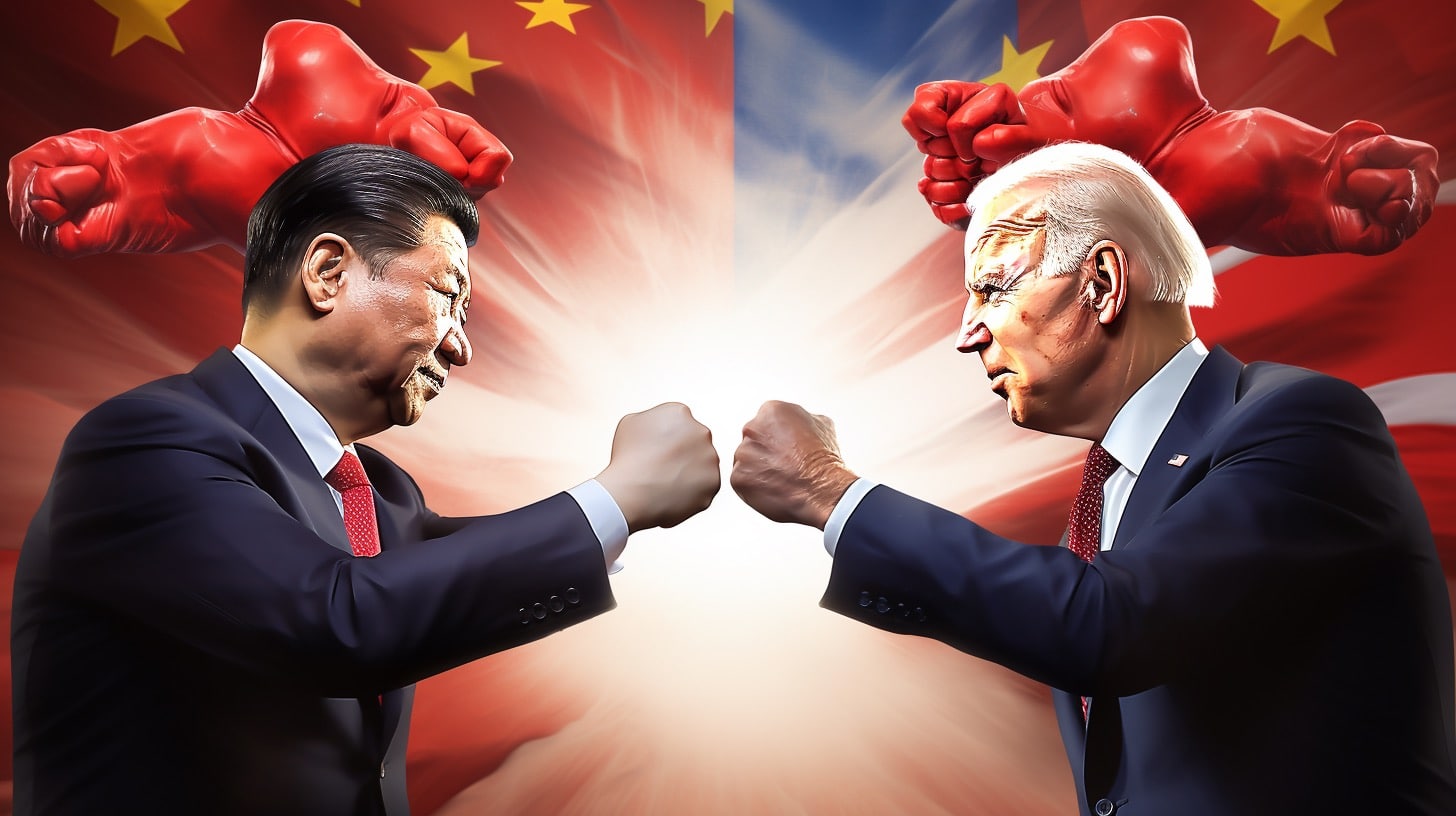The Biden administration recently announced new restrictions on U.S. private investment in certain high-technology sectors in China, in an effort to prevent U.S. firms from aiding the development of technologies that could benefit the Chinese military. However, these restrictions do not cover the investment by Wall Street firms through index funds, which indirectly support Chinese companies connected to the People’s Liberation Army or involved in human rights abuses. Lawmakers are concerned that this loophole allows Wall Street to fund Chinese companies that are working against U.S. interests and values. More transparency and restrictions are needed to address this issue and protect U.S. national security.
The Question of Investing in China: Supporting the Chinese Military or the Genocide in Xinjiang
Wall Street firms and their proxies on Capitol Hill are hoping that most Americans will never have to face the question of whether they want their retirement savings to support the Chinese military and the ongoing genocide in Xinjiang. President Biden’s new restrictions on investing in China are just the beginning of addressing this concern. The U.S. government has been targeting Chinese investments in the United States that pose a national security risk, and now the focus is expanding to outbound investments. The goal is to prevent U.S. firms from helping China develop technologies that could benefit the Chinese military.
Biden’s New Restrictions on Investing in China: Just the Beginning
Last week, President Biden issued an executive order imposing restrictions on U.S. private investment in specific high-technology sectors in China. However, some congressional Republicans argue that the restrictions are too weak since they do not cover sensitive areas like biotechnology and energy technology. This executive order is seen as a compromise between Biden’s national security officials and his economic team, and it is just the first step in a longer process. Lawmakers are now seeking to address another major loophole that allows Wall Street firms to fund Chinese companies working against U.S. interests.
The Loophole: Wall Street Funding Chinese Companies Working Against US Interests
Wall Street firms are currently using money from U.S. investors to fund Chinese companies that are connected to the People’s Liberation Army or complicit in the Chinese government’s human rights abuses. While Biden’s executive order addressed direct investment in specific industries, it did not cover U.S. investment in Chinese military-related companies through Wall Street index funds. These funds guide large institutional investors, such as state pension funds and university endowments, and provide both money and technical know-how to Chinese companies that pose a threat to U.S. interests. Lawmakers argue that more transparency and restrictions are needed in these areas to prevent Americans from inadvertently supporting the Chinese military.
The Rise of Wall Street Index Funds: Underwriting Problematic Chinese Firms
Wall Street index funds have been adding more Chinese companies to their portfolio, including those that have been blacklisted by the U.S. government for their connections to the Chinese military or their involvement in Chinese government repression. For example, MSCI and BlackRock funds indirectly support companies like Aviation Industry Corp. of China (AVIC), which produces advanced Chinese air force fighter jets, and China State Shipbuilding Corp., which produces Chinese navy warships. These investments raise concerns about the safety and accountability of American investments in these entities, as China’s project of “civil-military fusion” diminishes the distinction between these companies and the Chinese state.
The Need for Transparency and Restrictions on US Investment in Chinese Military-Related Companies
Lawmakers argue that it makes no sense to restrict the export of sensitive technologies to China while allowing Wall Street to fund Chinese companies that are trying to surpass the U.S. in the same technologies with clear military applications. There is a bipartisan effort on Capitol Hill to address this issue and close the loophole that allows Wall Street to indirectly support Chinese military-related companies. More transparency and restrictions are necessary to ensure that average American investors are not unknowingly funding entities that pose a threat to U.S. national security. Protecting Americans from funding the Chinese military and supporting human rights abuses should be a vital priority for Congress and the government.
The loopholes in U.S. investment in Chinese companies that are connected to the military or involved in human rights abuses need to be closed. Wall Street firms should not be allowed to indirectly fund entities that undermine U.S. national security and values. More transparency and restrictions are necessary to ensure that U.S. investments do not inadvertently contribute to the Chinese military’s capabilities. Congress and the government have a responsibility to respond to national security vulnerabilities and protect Americans by enacting laws and policies that address these issues.
Analyst comment
As an analyst, I predict that there will be increased pressure and bipartisan efforts to address the loopholes in U.S. investment in Chinese military-related companies. More transparency and restrictions will likely be implemented to prevent Wall Street firms from indirectly funding entities that undermine U.S. national security and values. Congress and the government will take steps to protect American investors and ensure that U.S. investments do not inadvertently contribute to the Chinese military’s capabilities.













